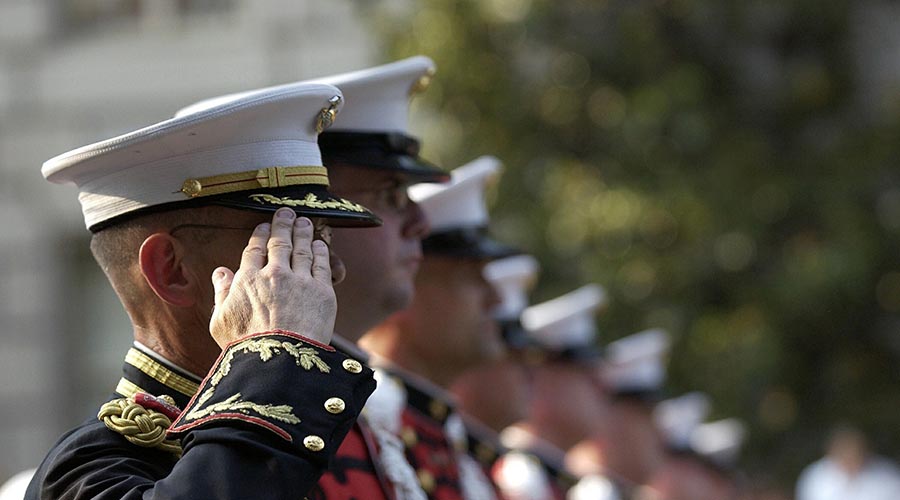Meet Dr. Kimberly Young-McLear
1. When did you know that you had to blow the whistle?
After enduring workplace bullying and harassment for two years with no relief informally from the command, in fact just the opposite, I ultimately decided to elevate my complaints to have a formal investigation into my allegations. Unfortunately, the Coast Guard assigned a biased and an unqualified investigator who had an existing working relationship with my perpetrator. The command, led by two Admirals, then subjected me to another humiliating investigation, violating my privacy while the harassment escalated, where they again assigned another biased and unqualified investigator who had a working relationship with the perpetrator. The results of the investigation delivered to me by the command, including an Admiral was extremely intimidating and they told me that the results were “unsubstantiated.” As the psychological toll on me mounted and relationships turned against me for coming forward, I experienced suicide ideation at my lowest point after the two years of abuse, not feeling believed, and socially isolated. I knew that if I was experiencing these there were many others that were also. To make an analogy, there would be enough people who the reporting systems and chain of command failed to fill up an aircraft carrier. I made an intentional decision that if I was strong enough to speak up again then I would. I knew I had to blow the whistle when I realized that the issues were pervasive and systemic and that powerful individuals (Two Admirals) in the Coast Guard were intentionally abusing their power to sweep allegations under the rug and protect bullies. I knew it was our leadership that created toxic culture and that the toxic culture would continue to create more leaders emulating those behaviors. I spoke up to do my part to break the cycle. It’s a culture that impacts thousands of people in the Coast Guard, and many serve in silence, many suffer a severe psychological toll, or they are otherwise pushed out of the service and the cycle continues.
2. Tell me about your job/responsibilities?
I am a cybersecurity professional and engineer in the Coast Guard. I am an active duty Coast Guard service member, and am currently detailed to the Dept of Homeland Security’s Cybersecurity and Infrastructure Security Agency (CISA). CISA is responsible for protecting the Nation’s critical infrastructure from physical and cyber threats.
3. How did your upbringing impact your decision to blow the whistle?
I was raised by two immigrant parents from Trinidad and Tobago. They both served almost 30 years each in the US Air Force. My parents taught me about ethics, compassion, and integrity. In my youth, I spent a lot of time in libraries learning about civil rights and social movements. They taught me to be observant and to intervene. Growing up around military bases I would interact with veterans from Vietnam, many were Black men, and I began to sense and understand that society seemed to discard older generations who have served and sacrificed. I internalized a sense of compassion and desire to want to pursue public service in part to honor their sacrifices as with the sacrifices of civil rights activists all the way to the atrocities that my ancestors endured from the Coasts of West Africa. This was reinforced when I studied at Florida A& M University, where I learned more about systemic racism. When I decided to blow the whistle after two years as a professor at the Coast Guard Academy, I reached a point when I decided “no more” not just for myself but for those whose voices and stories will never be known but also for our future generations who deserve better.
4. Who was most proud of you standing up and who was more disappointed in you standing up?
My family, other survivors, and ethical and compassionate colleagues and my students were the most proud. After I spoke up, it was revealed that 7 Admirals, 2 SES, several Captains, the legal staffs, and others despite having direct knowledge of my allegations of bullying, harassment, and discrimination, used their power to protect those who harmed me. The senior leadership of the Coast Guard continues to marginalize and silence me to this day. The Commandant of the Coast Guard, Admiral Karl Schultz, declined to provide me a formal written apology, meet with me to discuss ways in which our service can improve, and declined to hold anybody accountable for violating our core values, policies, and the Military Whistleblower Protection Act. I can only surmise that his lack of public appearance at the Congressional Hearing on Dec 11, 2019 and the above declinations, that he is the most disappointed that I stood up for a better Coast Guard and better military.


